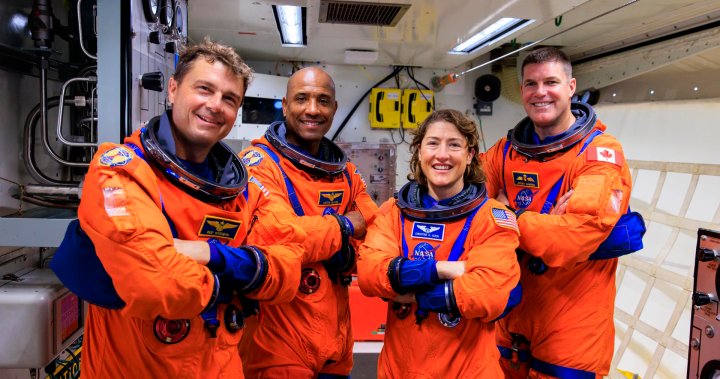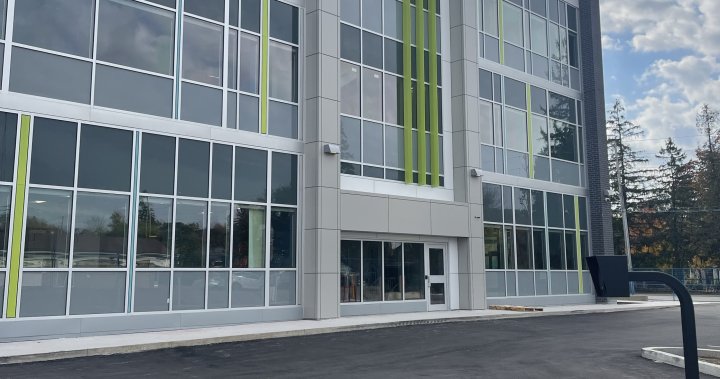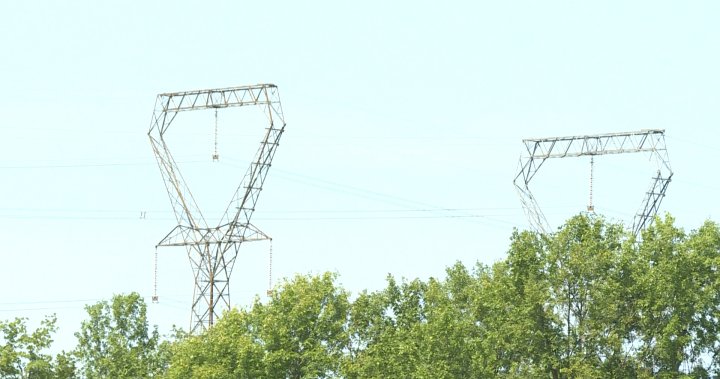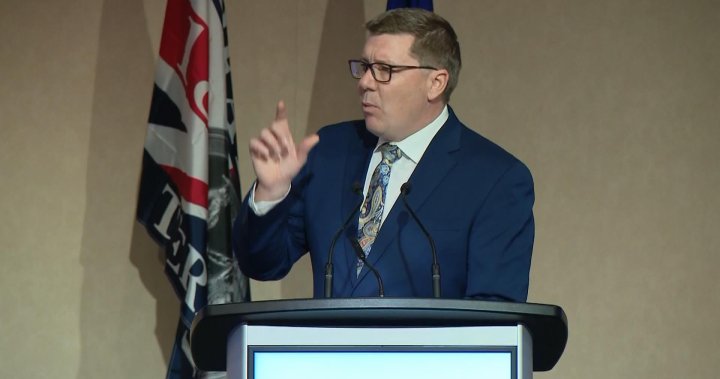Less than a year away from a historic trip around the moon, Canadian astronaut Jeremy Hansen says humankind’s upcoming missions to further explore deep space will inspire future generations, just as NASA’s Apollo expeditions sparked his passion.
Hansen will be on board Artemis II, slated to launch in November 2024, the first crewed voyage to lunar space since the final Apollo mission more than half a century ago.
Although Hansen, 47, was born a few years after NASA’s Apollo program ended, he still recalls the impact of seeing a photograph in an encyclopedia of U.S. astronaut Buzz Aldrin on the moon.
“That picture is still burned in my brain. I went back to that page so many times as a kid to look at it, and the realization that humans had left Earth and walked on the moon was a big deal to me. I turned my tree house into a spaceship and started exploring space in my imagination and just never really gave up on that dream of one day flying out there,” Hansen said in a recent interview.
“Now that I’m here and on the cusp of going into deep space, I see a direct benefit to our youth with this Artemis generation and I think reminding youth today that we can do big things, we can collaborate, is just so important for them.”
Hansen, of London, Ont., will be the first non-American to travel beyond the lower Earth orbit. His mission involves a lunar flyby, performing a figure-eight manoeuvre around the far side of the moon before returning to Earth. It will serve as a precursor to a mission expected to land the first woman and the first person of colour on the moon in December 2025 or later.
Preparations for the Artemis II mission will continue right up to launch, which Hansen said remains on schedule. Among the upcoming events will be a simulation in February of the capsule being plucked out of the Pacific by the U.S. Navy – as will happen at the end of the eight-day mission.
“We probably have more question marks than you would imagine, and that’s because this is a test and development program. You sort of go as fast as you can,” Hansen said. “We don’t kind of have it all done and then we just sit around and wait for a launch date.”
Hansen’s mission will be the first crewed flight of the Orion spacecraft, and the most acute risks – as with any space mission – are during launch and re-entry. Unlike being aboard the International Space Station, which has a shuttle at the ready to return people to Earth, there’s no way to abort the Artemis mission if something goes wrong.
“If you do have an issue, you are a long way from home,” Hansen said. “Potentially once you’ve left to go to the moon, you’re pretty much committed to that eight-day trip. So there are some risks, but they’re really from the point of view of distance.”
Jenni Gibbons, 35, of Calgary, was appointed in November to fill in if Hansen is unable to make the voyage. Her understudy role will give her experience that’s going to position the Canadian space program well for future missions, said Mathieu Caron, director of the Canadian Space Agency’s astronauts, life sciences, and space medicine division.
Gibbons agreed that her role in the moon mission – learning of everything from launch to splashdown – is an investment for future missions. “I certainly think if Canada chooses to invest in boots on the moon, I will be ready, as will everyone at our corps,” she said in an interview.
Fellow Canadian astronaut Joshua Kutryk, 41, of Fort Saskatchewan, Alta., is slated to travel to the space station in early 2025 on the first mission of the Boeing-built spacecraft Starliner-1. He will spend six months in space
All told, it means a busy few years for the country’s astronaut corps, but Caron said that is a nice problem to have.
“We’re very happy that we as a space agency are confronted with a beautiful problem where we have exciting missions that we have to support almost simultaneously,” said Caron.
David Saint-Jacques, 53, of St-Lambert, Que., the only member of the astronaut corps with previous space flight experience, is currently serving as a deputy director at the space agency, helping to develop Canada’s future lunar exploration capacity.
There are no plans to add more astronauts, Caron said, and all four current members are medically and technically cleared for a future space mission.
“Our objective is to make sure that our astronauts will be flying,” Caron said. In addition to the two announced missions there will be another Canadian going to the International Space Station before 2030 and one to the Lunar Gateway outpost, a small space station that will orbit the moon.
Canada is contributing Canadarm 3 to the lunar station. It is also helping to build a small lunar rover designed for use on the moon’s South Pole as well as a larger utility lunar rover, said Lisa Campbell, CSA president.
“We’re really excited about both human space flight, but also leveraging the benefits of space for Canada,” Campbell said.
© 2023 The Canadian Press




